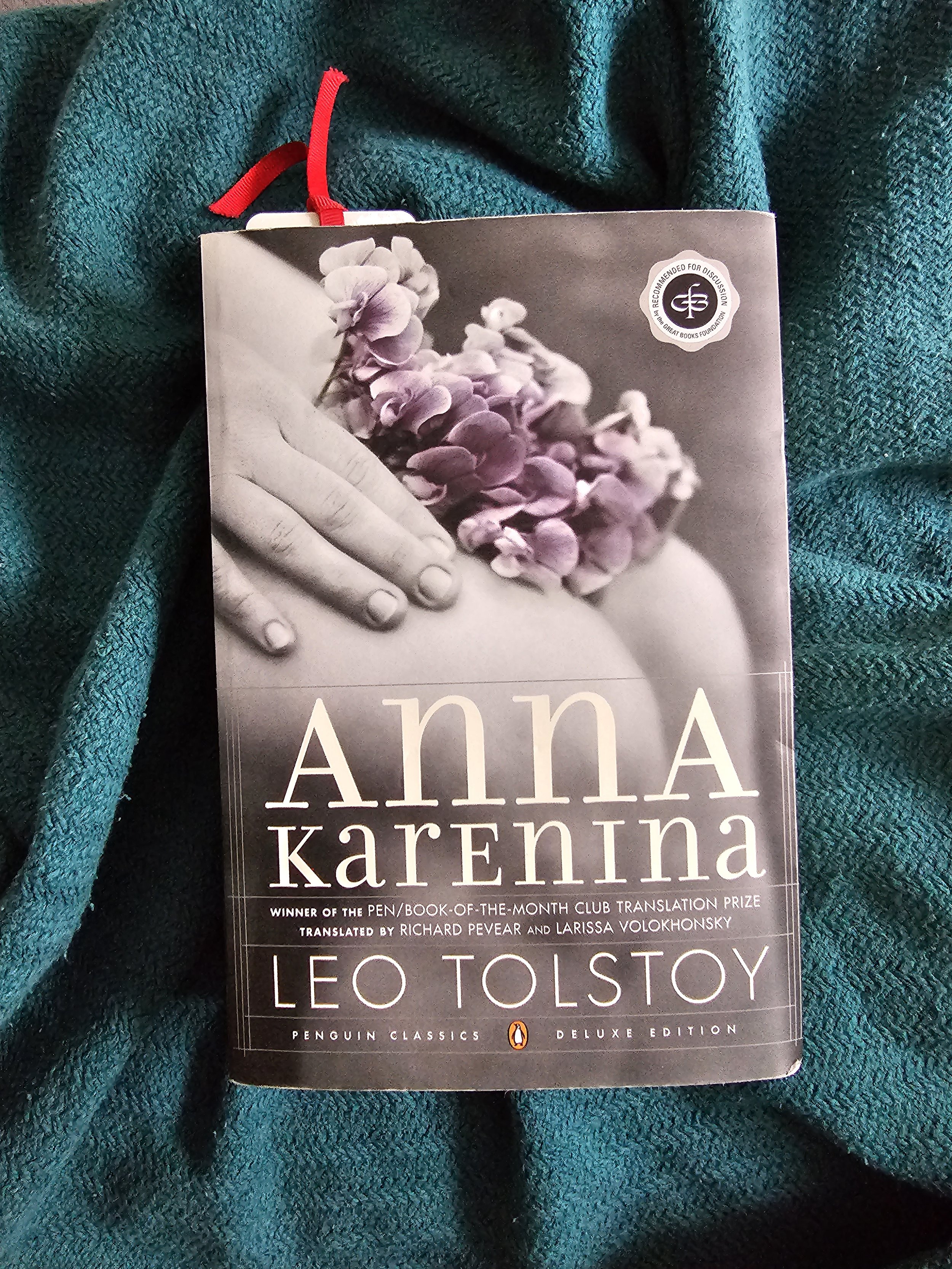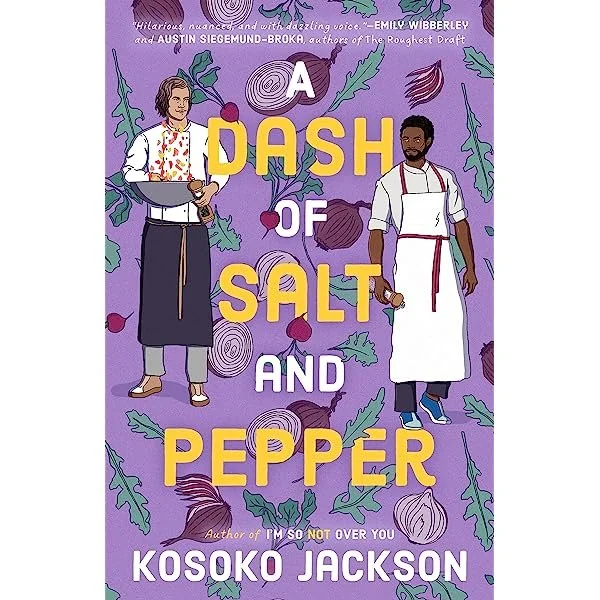Edgar's Book Round-up, May-June 2023
As mentioned elsewhere, we did some travelling in the latter half of May, and on our return, I started in a new position at work, and these elements conspired to make May and, to a lesser extent, June, rather slimmer pickings on the reading front than usual. We’ll see how things go from here: my round-ups may return to being bimonthly, but I am hopeful that I’ll be able to maintain a steady pace of just reading a shitload of books all the time. We’ll all find out the hard way, in any case. Links, as usual, go to our Bookshop.
※
We open with Joplin’s Ghost by Tananarive Due in audiobook form. The novel bounces between fictionalized scenes from the life of Scott Joplin and the adventures of Phoenix Smalls as her attempts to reach musical stardom are complicated by the titular ghost. Due handles both threads well: her historical passages feel authentic, and her author’s note at the end of the book details some of the research she did to create them. But in evoking the life and times of Scott Joplin, Phoenix’s struggles with the popular music scene of the early 2000s can feel a little hollow — or maybe I’m just salty because it reminded me too much of my teens in that era. In any case, it was a solid novel, and I look forward to continuing to explore Due’s oeuvre (but until then, you can see what Cameron and I have written about her work here).
The cover, which I quite like. The vulture is an important character.
Next up, also in audiobook form, was T. Kingfisher’s latest outing, A House with Good Bones. Probably Kingfisher’s clearest-cut entry yet into the woman-in-house genre, the reader follows Sam Montgomery as she moves back in with her mother after an archaeological dig falls through — but her mother is acting very strangely, and something is wrong with Sam’s childhood home. I have really enjoyed all of Kingfisher’s work that I’ve read, and this latest is no exception: if you’re also already on board for Kingfisher’s delightful blend of Weird Fiction with protagonists who are adults with adult problems but still have time to toss off a few well-placed quips, Good Bones will definitely satisfy; if you’re new to Kingfisher’s work in this space, this is a great entry point.
I followed it with the audiobook of Three Parts Dead, the first novel in the Craft sequence by Max Gladstone. Gladstone first came on my radar as a co-author of This Is How You Lose the Time War alongside Amal El-Mohtar (reviewed here), but I really fell for his work with Last Exit (I talked about it here and Cameron did so here), which was A Banger. Cameron has also reviewed this book, and pitched it to me as, “a corporate legal drama but the lawyers are wizards and the corporations are gods,” which definitely piqued my interest. It didn’t disappoint, and going into it with that mindset helped set the scene as well as preparing me to see the story beats pretty clearly. I basically cosign what Cameron said about this one, honestly, and I’m excited to read more of the series.
Bonus content: other books on my shelf where I left Notre-Dame after finishing it.
And here is where, just before departing for our journey, I finished Victor Hugo’s monstrous classic, Notre-Dame de Paris. While I think most of us are broadly aware of the ostensible central story — the love quadrangle of Claude Frollo, Quasimodo, Phoebus, and the beautiful Esmeralda — the novel is ill-served by this focus. Hugo casts wide net, drawing in characters from many social strata, inserting discurses on the architectural history of Paris, drawing the reader through bouts of Gothic mood-setting, and somehow, none of it drags. There’s a compelling authorial presence, not the same as but in a similar vein to Dostoevsky’s first-person narrators who don’t really take part in the plot, and the editor of my edition — the one linked above is a translation; I read the Folio Classique text with notes by Benedikte Andersson, which is not available on Bookshop — was at pains to note the richly-layered esoteric and alchemical imagery Hugo incorporates. I also cannot overstate the quality of Hugo’s prose, from the level of the clause on up: miracles of grammatical engineering abound, and a few passages had me near tears with their beauty. I think especially fondly of the description of Quasimodo descending from the heights of the cathedral to rescue Esmeralda from execution, which unrolls in a series of main clauses and analogies that only gains grace and energy. The novel certainly displays some of the biases of its time as well as those of its setting, most notably anti-Romani sentiment, though Hugo does seem at pains to render his characters as characters, even when then-contemporary sentiment would suggest that one oughtn’t. Also I really liked Pierre Gringoire, but I love every awful little man who sucks.
And here we have a gap in the shape of the last two weeks of May, during which Cameron and I and a dear friend of the blog were gallivanting around France mostly but also Barcelona, as mentioned elsewhere. I brought a few books with me, and didn’t finish any of them until returning home — and even then, I took a little break.
My copy of Book of Frank also features an inscription from the author to someone else, and — presumably — that person’s notes, which are charming and effusive.
So our next entry here is CAConrad’s Book of Frank, which is a reread for me, and not a lengthy one: I think I knocked it out in 24 hours, and they were ones when I had to work. In it, Conrad explores a kind of dreamy, memoir-ish space that’s closer to Big Fish than, say, The Argonauts: despite the afterward in the Wave Books edition — which I have — from Eileen Myles, Conrad is here exploring the deep roots of what they would later develop into a nonbinary identity and a Chaos-inflected, somatically-focused magical practice. That practice and that identity flourish in Conrad’s subsequent outing with Wave, A Beautiful Marsupial Afternoon, and it’s worth considering them in tandem: in …Frank, the poems are brief, punchy, raucous with pain and alienation, lit by moments of the character being seen or understood in some way; in …Afternoon, Conrad offered a more expansive worldview, their verse still raucous but there with the thrill of beauty and laughter. Even the book formats are different, …Frank in a smallish, square format, …Afternoon about the size of a couple of legal pads stacked on top of one another (a tribute, frankly, to Wave Books’ commitment to That Kind of Thing). It’s a great collection, but fundamentally, in many ways, a deeply sad one — and unusually, as poets go, Conrad’s strength is in their celebration.
I love this cover illustration.
After that, I ran through a couple more audiobooks, starting with The Verifiers by Jane Pek. The novel follows Claudia, a “verifier” for a secretive company that investigates peoples’ dating app profiles to make sure they’re not lying, as she seeks to discover what happened to a client who mysteriously disappeared. Claudia is a charming narrator, and her mystery-solving is counterbalanced by her struggles with her Chinese-American family, her love of literature, and the outsized role of dating apps in Pek’s vision of New York City. In many ways, the novel reminded me of Only Murders in the Building: an insistence on the story’s New-Yorkiness, coupled with a widespread engagement with digital offerings — podcasts in Only Murders…, dating apps in Verifiers — that feels just a little above what we see in normal reality is, I think, what did it. It was a lot of fun, and I look forward to seeking out more of Pek’s work.
I followed it with another audiobook: Last Night at the Telegraph Club by Malinda Lo. Lo has been on my radar for some time, but this was my first experience with her work. It’s an acquaintance I’ll want to maintain: …Telegraph Club was a layered, compelling story, focusing around Lily, a seventeen-year-old Chinese-American girl coming to terms with her sexuality amidst the paranoia of the Red and Lavender Scares in San Francisco. Lo’s grasp on the setting and the era — or eras, more properly, since the reader also gets glimpses of the love stories of Lily’s family members — feels extremely strong. The scenes at the titular Telegraph Club were, for my money, especially strong. Lo does an excellent job of conjuring the feeling of being a young queer person in a queer space for the first time, and the combination of panic, discomfort, and deep belonging struck a chord for me. I enjoyed it a lot.
Here she is, when I took a photo in the midst of a reading-in-bed session upon our return.
Which brings us to the other nineteenth-century chungus on this list, Lev Tolstoy’s Anna Karenina in the Pevear and Volokhonsky translation. This was my travel book: I read the better part of it on our journeys, but didn’t get to actually finish it until I’d been home for a little while. And much like Notre-Dame, this one is also ill-served by the focus on its ostensible plot: Anna’s affair with Vronsky and flight from her severe and unpleasant husband really only makes up about 45% of the novel. Another 45% is occupied with the burgeoning love between Kitty and Levin, an author-insert, as they embark on their lives together. The remaining 10% — and obviously these are completely accurate percentages — is concerned with didactic asides and omniscient narration. All in all, I’m sure that sounds awful, but it was actually great. I was entranced by how shitty pretty much all of them were: at every turn, every character is stymied by the expectations of their class and era, utterly forbidden to experience true emotion, connection, or transcendence by their own self-obsession and class constraints. Which, of course, could have been pure satire, and the novel isn’t without satirical moments, but Tolstoy paints this as a tragedy in the classical sense, not even allowing Levin a revelation that matters in any substantial way. It was fucking great, and I’m really glad I read it.
The cover, which is just as cute as the novel itself.
We close with A Dash of Salt and Pepper by Kosoko Jackson, a sweet little romance that functionally offers a queer, interracial twist on a classic Hallmark movie set-up: Xavier Reynolds, newly single and ousted from his high-powered business fast-track, has moved back to the small town in Maine in which he grew up. Desperate for a job to cover the costs of a fellowship that would get him back into the big leagues, Xavier starts working for Logan, a dashingly handsome restaurateur; as their attraction blossoms, will Xavier continue trying to escape the small-town life, or embrace love where he finds it? (We all know, but that’s okay.) I’ll admit, this is another book I read in an ongoing attempt to understand genre conventions in romance, and I think I’m slowly starting to get it. I’ll also freely admit that I was baffled by some of the choices of cultural touchstones in Dash of Salt…, especially Xavier’s insistence that The Devil Wears Prada is a must-see classic. But it was fun! I enjoyed it, overall, and it was cool to see how Jackson embraced or toyed with genre convention.
※
That’s it for now. We have not yet decamped from Twitter, but we’re also trying to post more on the Broken Hands Tumblr: if you’re looking for a reason to re-engage with that particular blue hellsite, maybe this is the rationale you’ve been searching for.






